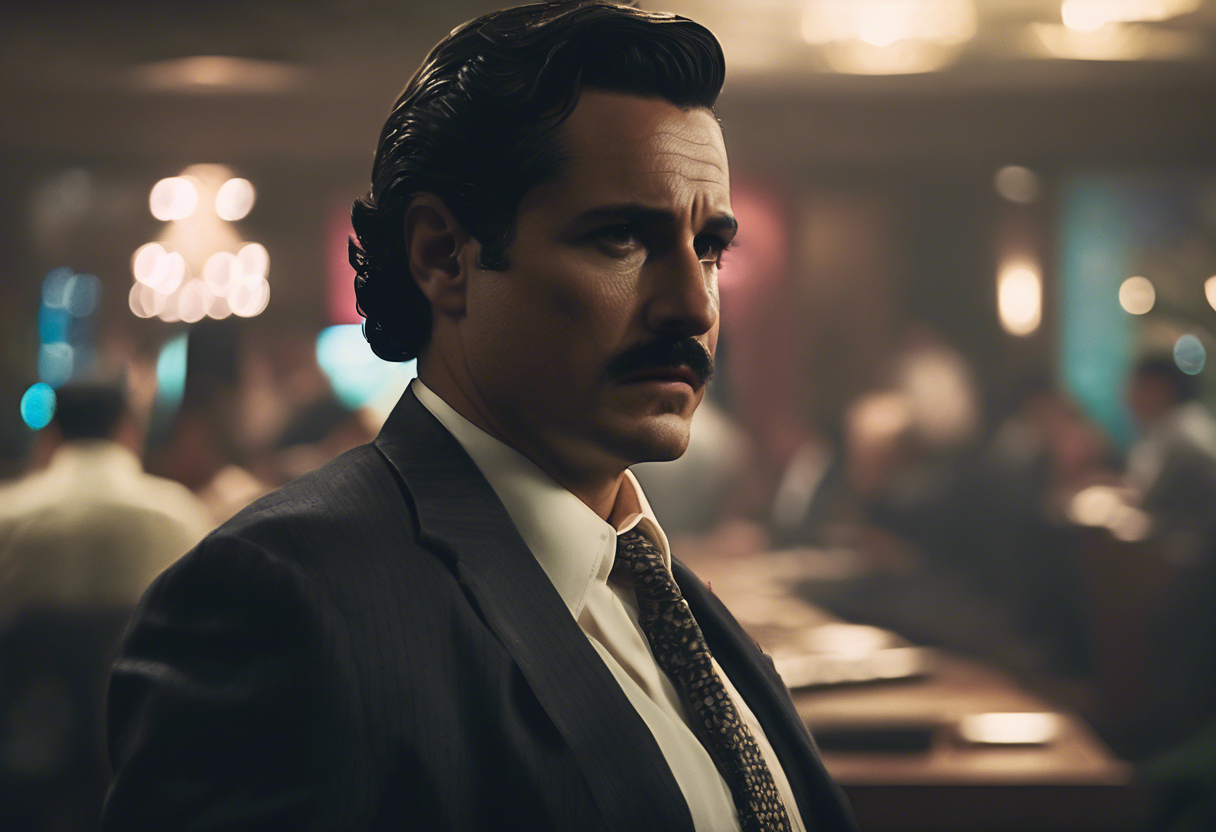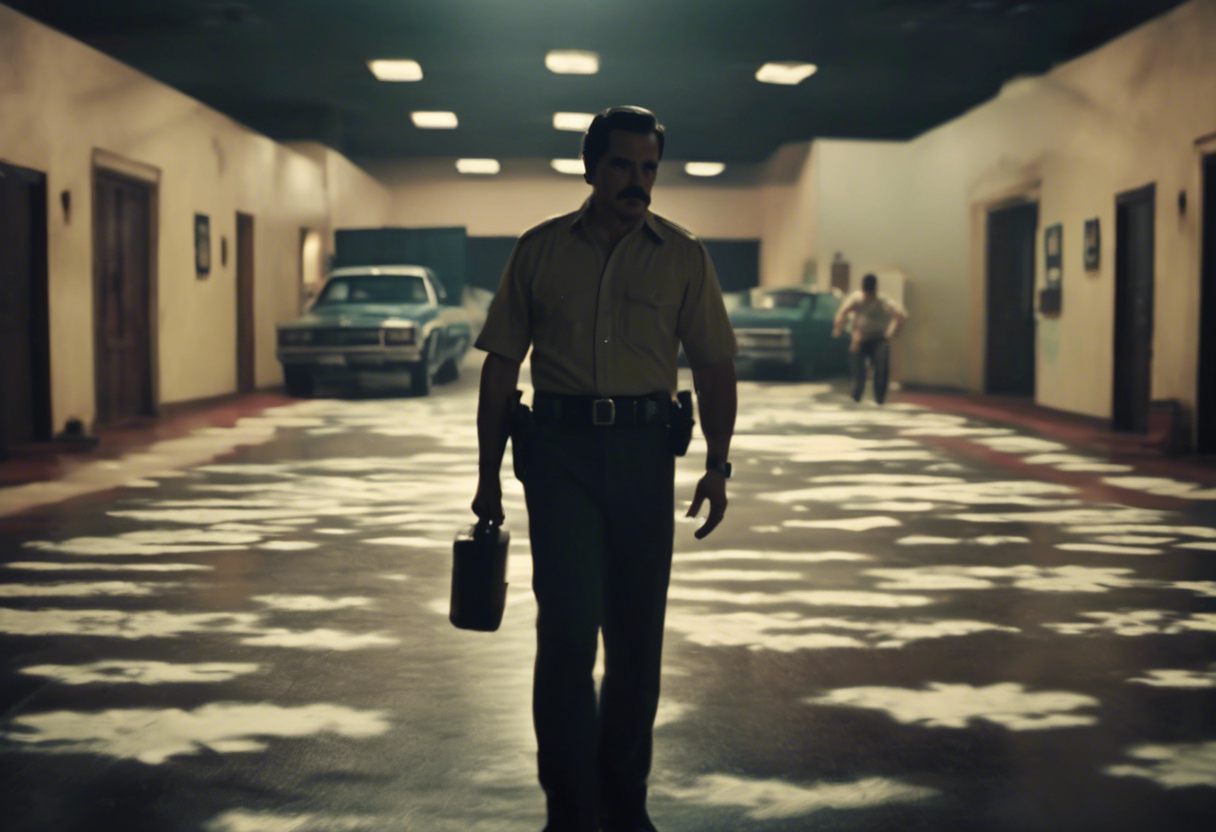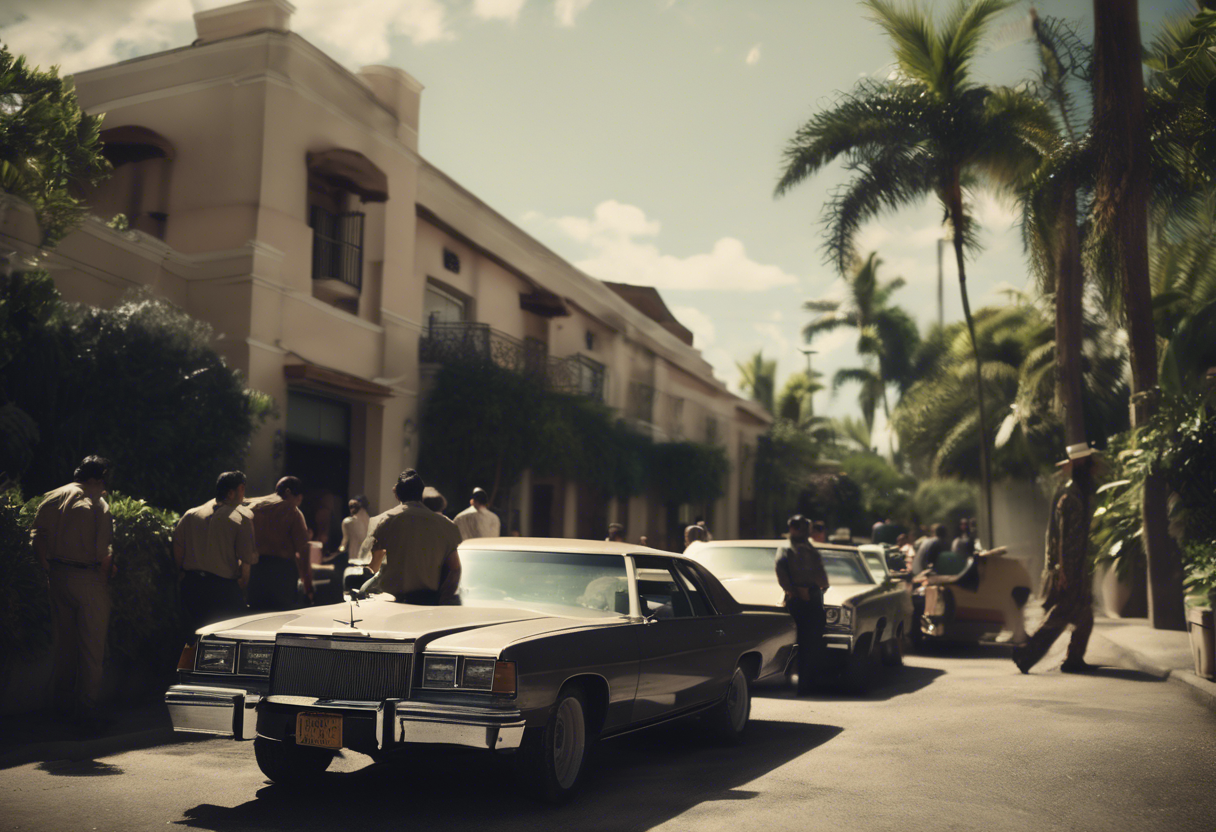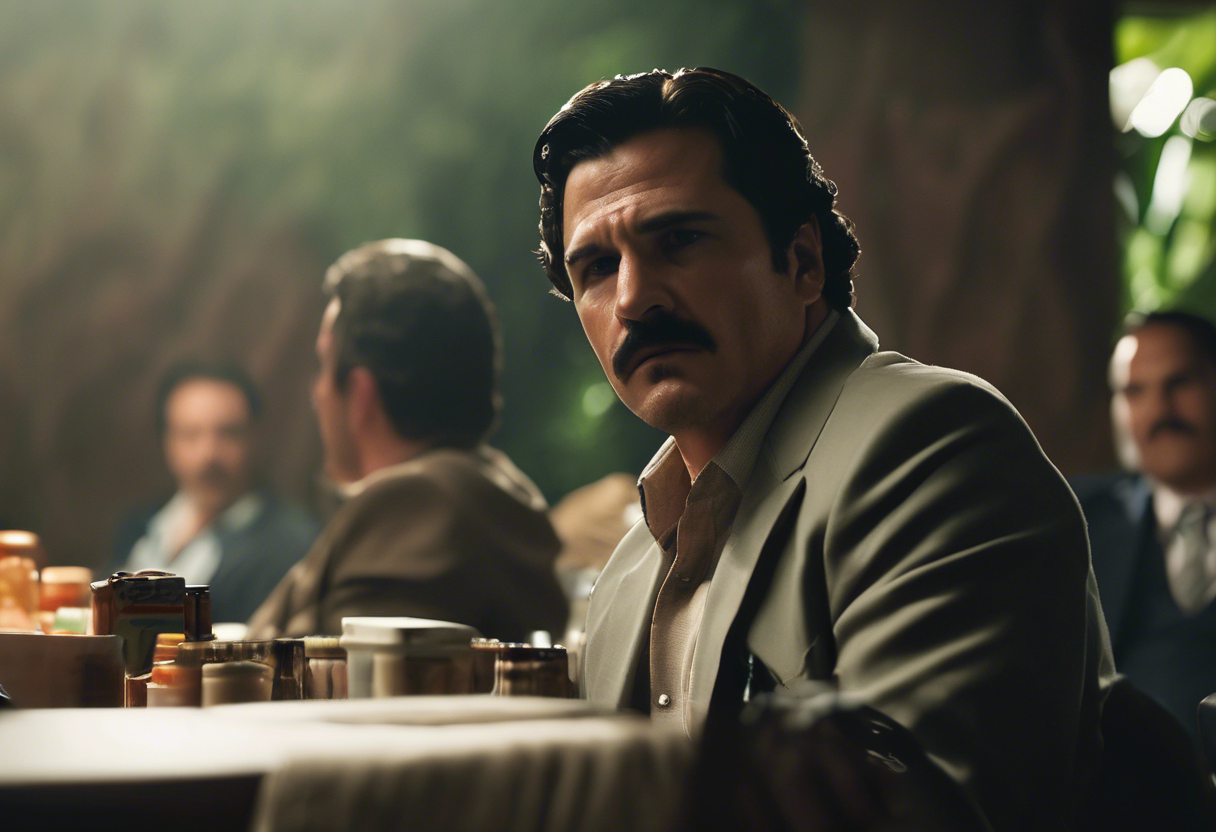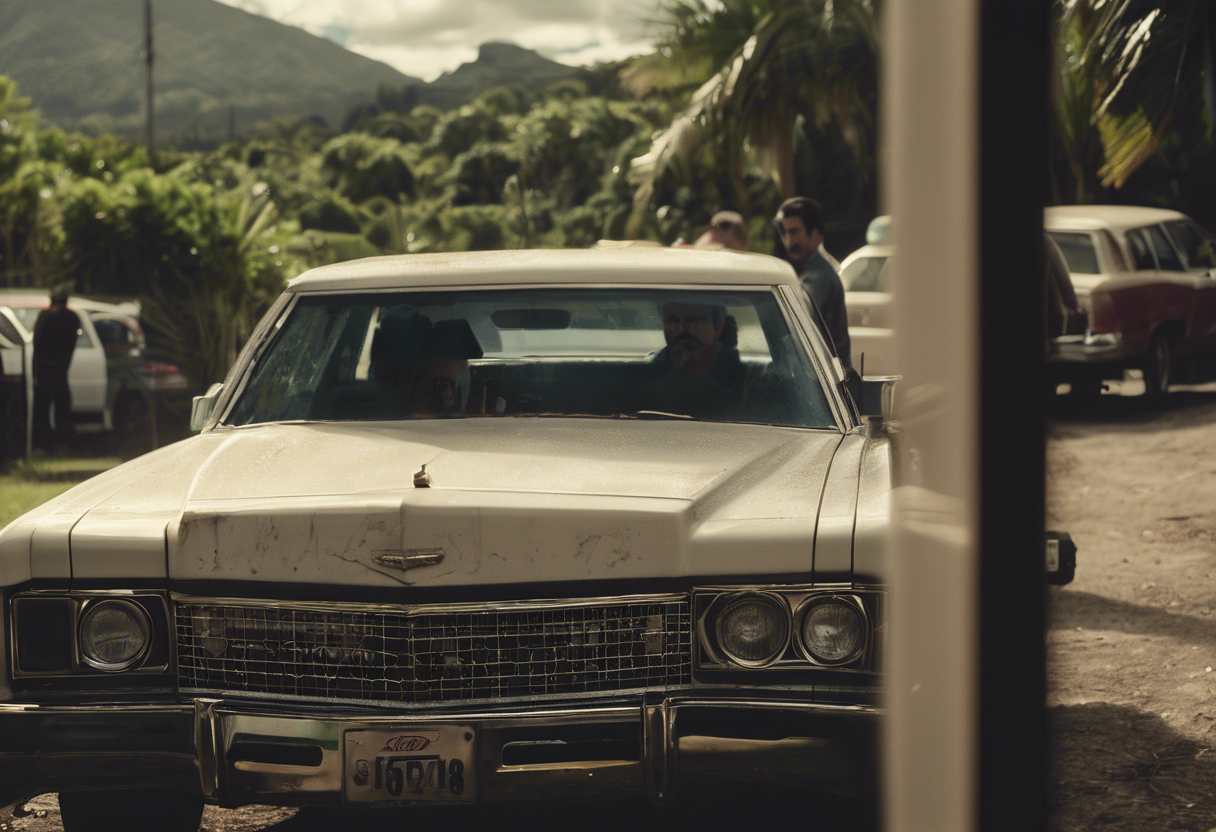Contents
Narcos Season 2: Episode 8 – Exit El Patrón
Introduction
"Narcos" is an American crime drama television series created and produced by Chris Brancato, Carlo Bernard, and Doug Miro. The series, set and filmed in Colombia, chronicles the rise and fall of the notorious drug kingpin Pablo Escobar and the Medellín cartel. The second season, in particular, focuses on the intense cat-and-mouse game between Escobar and the law enforcement agencies determined to bring him down.
"Exit El Patrón," the eighth episode of the second season, is a pivotal installment in the series. Directed by Gerardo Naranjo and written by Chris Brancato, Carlo Bernard, and Doug Miro, this episode marks a significant turning point in the narrative. The episode is renowned for its meticulous attention to detail, superb acting, and well-constructed storyline, all of which contribute to its critical acclaim.
Plot Summary
"Exit El Patrón" opens with the escalating pressure on Pablo Escobar as the Colombian police, aided by the DEA, close in on his hideouts. The episode begins with a dramatic sequence showing the relentless pursuit of Escobar by the Search Bloc, a specialized unit of the Colombian National Police trained by the U.S. DEA. This unit, led by Colonel Carrillo, is determined to capture or kill Escobar, who has managed to evade capture for years.
As the Search Bloc narrows down Escobar’s possible locations, the tension builds up. Escobar, aware of the imminent danger, becomes increasingly paranoid and isolated. His relationships with his family and associates begin to fray, reflecting the strain of his situation. His wife, Tata, and his children are in hiding, and his brother Roberto is struggling to maintain the remnants of the cartel’s operations.
Meanwhile, the DEA agents, particularly Steve Murphy and Javier Peña, are working closely with the Colombian authorities to gather intelligence and track down Escobar. The episode highlights the strategic and tactical efforts of both sides, with the law enforcement agencies using advanced surveillance techniques and informants to pinpoint Escobar’s whereabouts.
One of the central conflicts in the episode revolves around Escobar’s decision to surrender to the authorities under certain conditions. He negotiates with the Colombian government, seeking guarantees of safety and reduced sentences for himself and his associates. However, this plan is fraught with complications, as both the Colombian government and the U.S. DEA are skeptical of Escobar’s intentions.
The narrative also delves into the personal struggles of the characters. Steve Murphy and Javier Peña face their own demons as they grapple with the moral implications of their mission. The episode portrays the psychological toll on both the hunters and the hunted, highlighting the human cost of the drug war.
As the episode progresses, the stakes become higher. Escobar’s hideouts are raided one by one, and his closest associates are either captured or killed. The final confrontation is intense and dramatic, culminating in a tragic event that marks the end of an era for Pablo Escobar.
The episode concludes with a sense of closure for some characters while setting the stage for the aftermath of Escobar’s demise. The fall of "El Patrón" has significant repercussions, both for the characters in the show and for the broader context of the drug war.
Themes and Symbolism
"Exit El Patrón" explores several key themes that are central to the "Narcos" series. One of the primary themes is the inevitability of justice, despite the immense power and influence wielded by figures like Pablo Escobar. The episode shows how the relentless pursuit by law enforcement eventually wears down even the most elusive targets.
Another significant theme is the human cost of the drug war. The episode vividly portrays the suffering and loss experienced by both the drug lords and the law enforcement agents. This theme is symbolized through the personal struggles of characters like Steve Murphy and Javier Peña, who are haunted by the violence and moral ambiguities of their mission.
The episode also delves into the theme of power and its corrupting influence. Pablo Escobar’s descent into paranoia and isolation serves as a metaphor for the destructive nature of unchecked power. His fall from grace is a stark reminder of the transience of power and the consequences of unchecked ambition.
Cultural Impact
"Exit El Patrón" had a significant cultural impact upon its release. The episode was widely discussed and praised for its gripping narrative and historical accuracy. It contributed to the broader cultural fascination with the life and times of Pablo Escobar, a figure who has become a symbol of both the allure and the danger of the drug trade.
The episode’s influence can be seen in various forms of media that have referenced or been inspired by the "Narcos" series. From documentaries to films, the story of Pablo Escobar continues to captivate audiences, and "Exit El Patrón" remains a pivotal chapter in this narrative.
Critical Reception
"Exit El Patrón" received widespread critical acclaim. Critics praised the episode for its tense and well-crafted storyline, as well as the performances of the cast, particularly Wagner Moura as Pablo Escobar. The direction by Gerardo Naranjo was also lauded for its ability to maintain a high level of tension throughout the episode.
Viewers similarly praised the episode, noting its emotional impact and the way it brought the story of Pablo Escobar to a dramatic and satisfying conclusion. The episode’s attention to detail and historical accuracy were also highlighted as strengths.
Legacy
"Exit El Patrón" has left a lasting legacy in the world of television and beyond. It is often cited as one of the best episodes of the "Narcos" series, and its influence can be seen in subsequent TV shows and films that deal with similar themes of crime and justice.
The episode’s portrayal of the drug war and its human cost continues to resonate with audiences, making it a significant contribution to the broader cultural discourse on these issues. As a piece of storytelling, "Exit El Patrón" stands as a testament to the power of television to engage, inform, and reflect on the complexities of real-world events.

